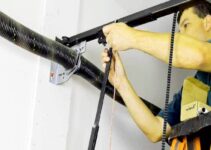Garage Door Chain
Dealing with a garage door that exhibits excessive slack in the chain can be more than just frustrating; it can be a signal that something is amiss with your garage door system.
As we embark on this comprehensive guide, inspired by Terrance Coleman’s inquiry, it becomes clear that understanding and resolving garage door chain problems are crucial for maintaining the smooth functionality of this essential home feature.
Is Chain Slack Normal?
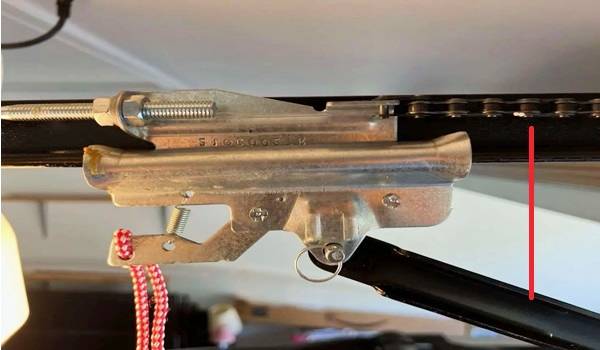
Before we delve into the adjustment process, let’s take a moment to discuss the normal range of chain slack in a garage door.
While some level of slack is indeed normal, excessive slack can lead to serious performance issues, compromise the security of your home, and even result in costly repairs.
Assessing the situation requires a keen eye and an understanding of what constitutes a healthy amount of slack.
Identifying Excessive Slack: Tools You’ll Need
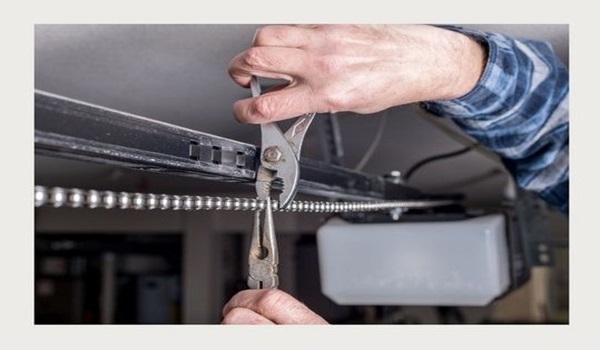
To accurately identify excessive slack, you’ll need a set of essential tools. The wrench, a fundamental tool in any homeowner’s kit, will be your primary instrument for adjusting nuts and bolts.
The tape measure becomes a precision tool in measuring slack, ensuring that adjustments are made with accuracy.
A marker or pen helps mark reference points, facilitating a smoother adjustment process. And of course, safety gear such as gloves and safety glasses are non-negotiable when working on any mechanical components.
You may also like:
Chain Drive vs Belt Drive Garage Door Openers
Gather Your Tools: Step-by-Step Adjustment
1. Loosening the Bolt
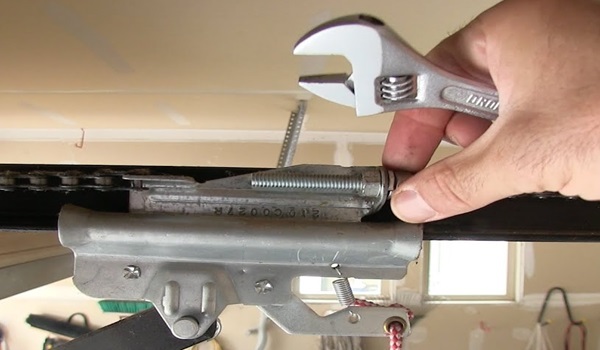
The initial step of loosening the bolt sets the stage for the entire adjustment process. It’s crucial to approach this step with a delicate touch.
Ensuring that the bolts are loosened enough to allow flexibility but not to the extent that they become detached. This delicate balance is key to a successful adjustment.
2. Pulling Ends Together
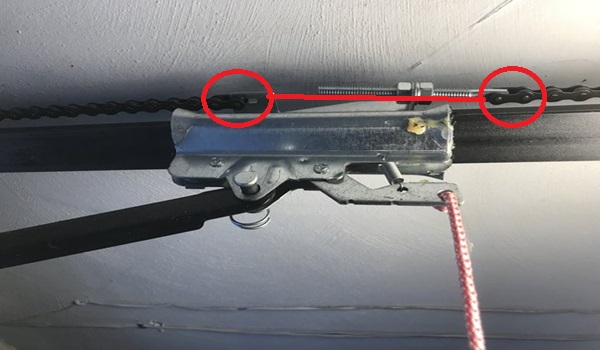
As you pull the ends of the chain together, you are essentially bringing order to the potential chaos created by excessive slack.
This step requires a steady hand and a careful eye, as it sets the foundation for the subsequent tightening process.
3. Tightening the Nut
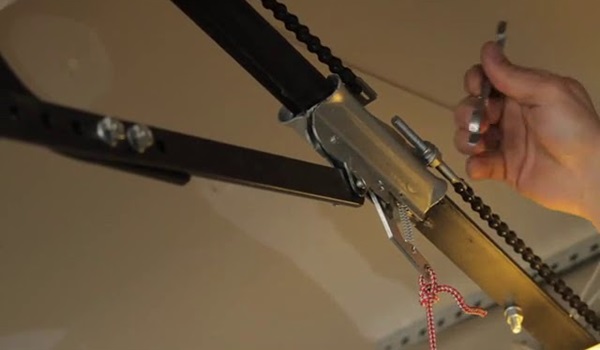
Tightening the nuts on the bolts is the critical step that secures the adjusted position. It’s not just about tightening; it’s about finding the optimal tension that ensures the chain remains appropriately taut.
This balance prevents the chain from reverting to its loose state and promotes a smoother operation.
4. Checking for Optimal Slack
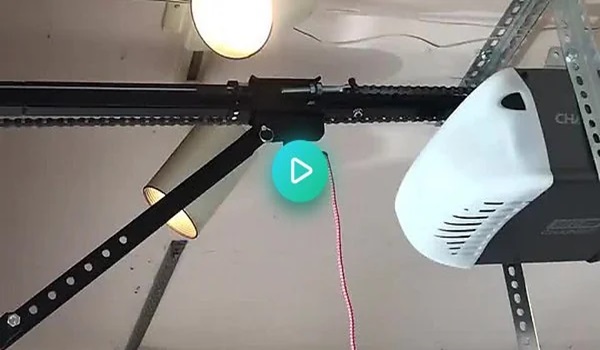
Using the tape measure, you must now confirm that the chain slack falls within the manufacturer’s recommended range.
This step emphasizes the importance of consulting your garage door opener manual, as different systems may have specific guidelines for optimal slack measurements.
Final Steps
As the adjustment nears completion, it’s time to conduct a comprehensive check of the entire chain system.
This involves not only ensuring that the adjusted components are secure but also tightening any additional nuts or bolts that may have been affected during the adjustment process.
A meticulous approach to these final steps ensures a stable and long-lasting adjustment.
Preventing Damage
While the adjustment process may seem straightforward, it’s crucial to underscore the importance of caution.
Applying too much force or neglecting safety measures can lead to unintended consequences, such as damage to the garage door system or personal injury.
This section serves as a gentle reminder to prioritize safety throughout the adjustment process.
Understanding the Mechanics
To truly master the art of chain adjustment, taking a peek inside the garage door opener becomes an enlightening experience.
Understanding the mechanics of your garage door system provides valuable insights into how adjustments impact overall functionality.
This knowledge empowers homeowners to identify issues promptly and perform effective adjustments in the future.
Maintenance Tips: Regular Checks
Regular maintenance checks are the cornerstone of preventing chain slack issues from recurring. Beyond the adjustment process, homeowners are encouraged to inspect the garage door chain, bolts, and other components periodically.
Lubricating moving parts, as recommended by the manufacturer, ensures optimal performance and extends the lifespan of the entire system.
Conclusion
The adjustment of your garage door chain is not just a momentary fix; it’s an investment in the long-term functionality and efficiency of your home.
By taking the time to understand the mechanics, following the adjustment process meticulously, and conducting regular maintenance checks, you actively contribute to the well-being of your garage door system.
Adjusting your garage door chain is not merely a chore; it’s a proactive measure that safeguards against future headaches and potential repair costs.
Maintaining your garage door chain is a small but significant investment of time and effort. The smooth, noise-free operation of your garage door is the result of this attention to detail.
So, embrace the opportunity to fine-tune your garage door system, and revel in the convenience it provides every day.
Garage door chain adjustments are not just about fixing a problem; they’re about ensuring the continued reliability and efficiency of an integral part of your home.
FAQs
How often should I check my garage door chain?
Regular checks are recommended at least twice a year to catch potential issues early and prevent extensive damage. This proactive approach contributes to the longevity of your garage door system.
Can I over-tighten the chain?
Yes, over-tightening the chain can strain the garage door opener motor and other components. This FAQ emphasizes the importance of following manufacturer guidelines for optimal tension.
What if I hear strange noises after adjustment?
If unusual sounds persist after adjustment, rechecking the chain tension and inspecting for any damaged components is advised. In some cases, professional assistance may be necessary to identify and rectify the issue.
Can I use any wrench for the adjustment?
While a wrench is a common tool, it’s essential to use the one specified in your garage door opener manual to ensure proper adjustment without causing damage. This FAQ emphasizes the importance of precision in the adjustment process.
Is professional help necessary for chain adjustment?
While many homeowners can successfully perform chain adjustments, this FAQ acknowledges that uncertainties or difficulties may arise. In such cases, seeking professional help is advisable to prevent potential damage and ensure the adjustment is done correctly.

